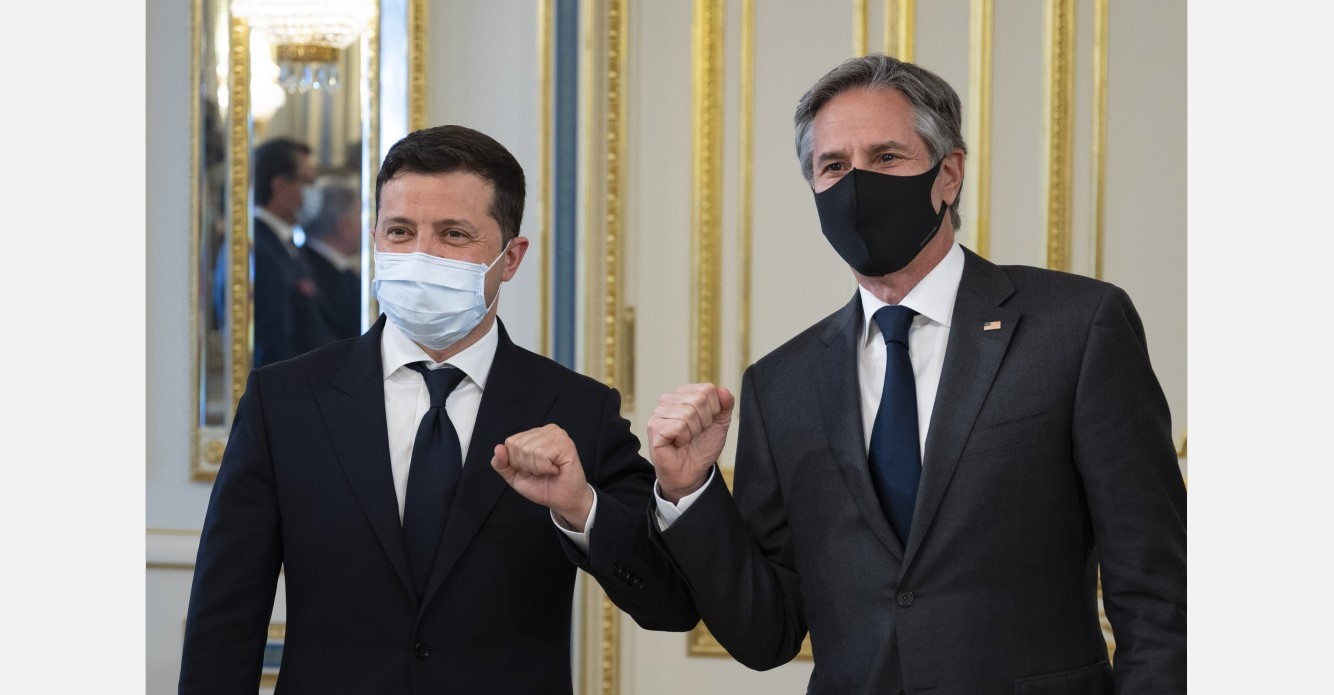Should the Joseph Biden administration confirm the containment goal as part of its overall strategy in Europe, it will be able to take the lead in developing a strategic partnership with Ukraine on foundations laid during the Donald Trump administration. The latter supplied lethal military equipment that had previously been withheld to Ukraine and launched major training programs for the Ukrainian army, drawing on bipartisan Congressional backing. The Trump administration also moved decisively with bipartisan support to block Gazprom’s Nord Stream 2 pipeline project, adverse to European energy security generally and Ukraine’s national interests in particular.
Developing a full-fledged US-Ukraine strategic partnership under the Biden administration would presuppose continuity with those policies on military assistance and energy security. It also presupposes Washington’s return to mentoring and supporting Ukraine in the diplomatic negotiations aimed at ending Russia’s occupation of Ukrainian territories. The appointment of a US ambassador in Kyiv is also long overdue.
Those are the expectations that Ukrainian President Volodymyr Zelenskyy, the government, and civil society in Ukraine have voiced since the Biden administration took office and that were presented to Blinken in Kyiv today (Ukrinform, Unian, May 6).
Some of Kyiv’s expectations confront the United States with the problem of expectation management. Conversely, Zeleneskyy’s delusional hopes to end Russia’s aggression through bilateral negotiations with President Vladimir Putin (see EDM, April 28, 29, May 3) necessitate hands-on US mentoring in Kyiv before any damage is incurred.
In the run-up to Blinken’s visit, Ukrainian officials from Zelenskyy on down redoubled calls to add the United States to the existing “Normandy” format of negotiations (Russia, Ukraine, Germany, France). It is a sign of President Zelenskyy’s nervousness and impatience to “end the war” that he is reaching out directly to the Kremlin while asking the US to join the Normandy format at the same time (The Financial Times, President.gov.ua, April 26).
Trending Now
Adding the United States to the Normandy format is not only impossible but would harm Ukraine’s interests if that move were achieved. Moscow would undoubtedly veto Washington’s entry into this group. Berlin and Paris would also oppose it for reasons of their own. They would not want to end up in Washington’s shadow if the latter joins the Normandy group. German Chancellor Angela Merkel and French President Emmanuel Macron are deeply invested politically in the Normandy process: the exiting Merkel for a career-crowning success, the re-electable Macron for seizing the center-stage from Merkel and playing mediator between Europe and Russia.

On the other hand, should Washington hypothetically be accepted into the group, it would have to take into account Berlin’s and Paris’s cautious, concession-prone attitude toward Moscow. This would require Washington to adjust its position to a lower common denominator with Berlin and Paris. Furthermore, if admitted into the Normandy process, the United States would have to adopt the “acquis” of documents that form the basis of this seven-year process, beginning with the Minsk “agreements” aimed at reinserting the Russian-controlled Donetsk and Luhansk back into Ukraine on Russian-imposed terms. Ukraine would be far better off if the United States resumes an active diplomatic role unencumbered by the Minsk “agreements” and the Normandy acquis (Tetiana Sylina, “Non-Format,” Dzerkalo Tyzhinia, April 27).
US diplomat Kurt Volker performed outstandingly as Special Representative in negotiations outside the Normandy format—albeit in consultation with Berlin and Paris—from July 2017 through September 2019. The Special Representative’s post became, however, a collateral casualty to Washington’s political turmoil. Ukrainian officials hope for a US Special Representative to be appointed who might emulate Volker’s performance. Ukrainian Foreign Minister Dmytro Kuleba has expressed hope that the State Department would itself select and appoint that special representative (RFE/RL, May 2).
To Be Continued in Part 2
Read More:
- Forgotten political prisoners of the Kremlin have hopes for Blinken’s visit to Ukraine
- Meeting one-on-one with Putin: A reckless adventure for Zelenskyy (Part 1)
- The Kremlin sets insuperable preconditions to meeting with Zelenskyy
- Zelenskyy seeks a summit with Putin again
- Yermak’s earlier giveaways come back to haunt Zelenskyy and Ukraine
- Kozak-Yermak plan on Donbas: The fine print
- Official data prove Russia funnelled trainloads of ammo and fuel to occupied Donbas in early 2015
- (No) right to a fair trial, or a manual to Russia’s conveyor of repressions in Crimea
- Escalation around Donbas: Is the Ukrainian army prepared for full-scale Russian aggression?
- Russia closing off more of Black Sea even as it pulls its land forces back from Ukrainian border
- Putin may have pulled back from Ukraine border but he did not back down, experts warn
- Four lessons learned from Russia’s Ukraine buildup
- Deconstructing Putin: it is time the West learned to be bold
- Putin’s aggression against Ukraine part of broader effort to destroy international rules of the game and force West to recognize his right to do so, Skobov says
- Putin to turn a deaf ear to Biden’s words, Portnikov says
- “Dropping rumor bombs in Ukraine”: Russia’s building up disinformation around its military build-up
- “Poke-and-probe.” Why Russia is massing troops & military hardware along Ukraine border

